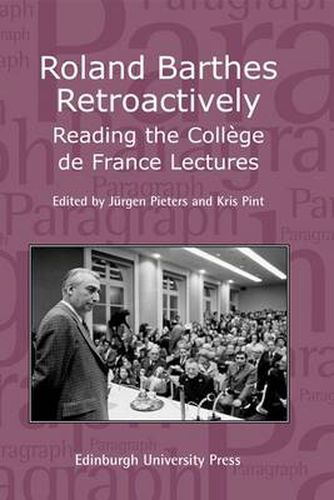Readings Newsletter
Become a Readings Member to make your shopping experience even easier.
Sign in or sign up for free!
You’re not far away from qualifying for FREE standard shipping within Australia
You’ve qualified for FREE standard shipping within Australia
The cart is loading…






In January 1977 Roland Barthes became professor of literary semiology at the College de France, where he taught for three years until his death in March 1980. His lectures from those years, published more than two decades after his death, represent the final intellectual journey of one of the most influential thinkers of the twentieth century. In his late teaching, Barthes continuously challenged his previous work, seeking out new ways of reading and living. In his idiosyncratic style, he sketched the outlines of a critical and ethical project that is still thought- provoking and relevant today. Taking the College de France lectures as a starting point, leading specialists assess Barthes’s legacy and the constituent fantasies that haunted his entire oeuvre. This volume reveals the untimely force of Barthes’s thinking, whereby looking back often means discovering unexpected possibilities for contemporary literary and cultural studies. This is also published as a Special Issue of the journal Paragraph.
$9.00 standard shipping within Australia
FREE standard shipping within Australia for orders over $100.00
Express & International shipping calculated at checkout
In January 1977 Roland Barthes became professor of literary semiology at the College de France, where he taught for three years until his death in March 1980. His lectures from those years, published more than two decades after his death, represent the final intellectual journey of one of the most influential thinkers of the twentieth century. In his late teaching, Barthes continuously challenged his previous work, seeking out new ways of reading and living. In his idiosyncratic style, he sketched the outlines of a critical and ethical project that is still thought- provoking and relevant today. Taking the College de France lectures as a starting point, leading specialists assess Barthes’s legacy and the constituent fantasies that haunted his entire oeuvre. This volume reveals the untimely force of Barthes’s thinking, whereby looking back often means discovering unexpected possibilities for contemporary literary and cultural studies. This is also published as a Special Issue of the journal Paragraph.